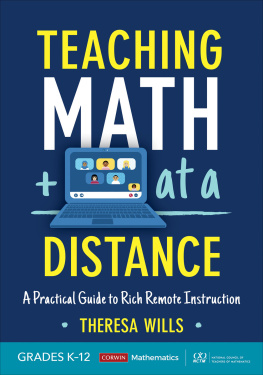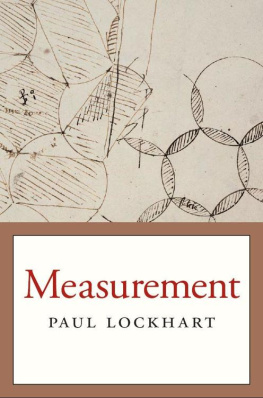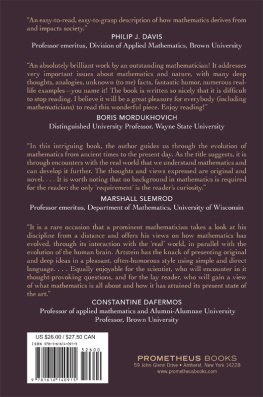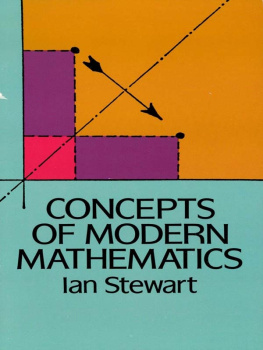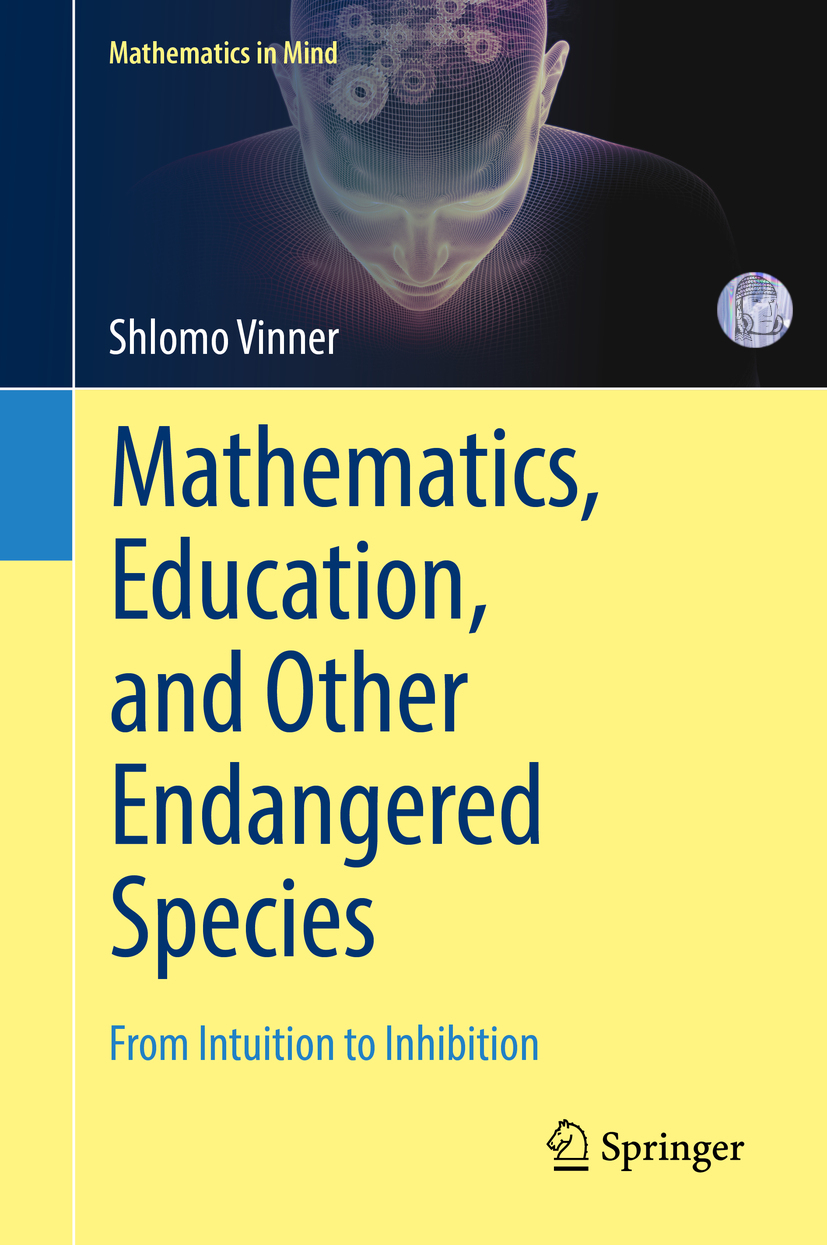Mathematics in Mind
Series Editor
Marcel Danesi
University of Toronto, Canada
Editorial Board
Louis H. Kauffman
University of Illinois at Chicago, USA
Dragana Martinovic
University of Windsor, Canada
Yair Neuman Robbins
Ben-Gurion University of the Negev, Israel
Rafael Nez
University of California, San Diego, USA
Anna Sfard
University of Haifa, Israel
David Tall
University of Warwick, UK
Kumiko Tanaka-Ishii
University of Tokyo, Japan
Shlomo Vinner
The Hebrew University of Jerusalem, Israel
The monographs and occasional textbooks published in this series tap directly into the kinds of themes, research findings, and general professional activities of the Fields Cognitive Science Network, which brings together mathematicians, philosophers, and cognitive scientists to explore the question of the nature of mathematics and how it is learned from various interdisciplinary angles.
The series will cover the following complementary themes and conceptualizations:
Connections between mathematical modeling and artificial intelligence research; math cognition and symbolism, annotation, and other semiotic processes; and mathematical discovery and cultural processes, including technological systems that guide the thrust of cognitive and social evolution
Mathematics, cognition, and computer science, focusing on the nature of logic and rules in artificial and mental systems
The historical context of any topic that involves how mathematical thinking emerged, focusing on archeological and philological evidence
Other thematic areas that have implications for the study of math and mind, including ideas from disciplines such as philosophy and linguistics
The question of the nature of mathematics is actually an empirical question that can best be investigated with various disciplinary tools, involving diverse types of hypotheses, testing procedures, and derived theoretical interpretations. This series aims to address questions of mathematics as a unique type of human conceptual system versus sharing neural systems with other faculties, whether it is a series-specific trait or exists in some other form in other species, what structures (if any) are shared by mathematics, language, and more.
Data and new results related to such questions are being collected and published in various peer-reviewed academic journals. Among other things, data and results have profound implications for the teaching and learning of mathematics. The objective is based on the premise that mathematics, like language, is inherently interpretive and explorative at once. In this sense, the inherent goal is a hermeneutical one, attempting to explore and understand a phenomenonmathematicsfrom as many scientific and humanistic angles as possible.
More FREE books at: www.textseed.xyz
Shlomo Vinner
Mathematics, Education, and Other Endangered Species From Intuition to Inhibition
Shlomo Vinner
The Hebrew University of Jerusalem, Jerusalem, Israel
ISSN 2522-5405 e-ISSN 2522-5413
Mathematics in Mind
ISBN 978-3-319-90034-6 More FREE books at:
www.textseed.xyz
Library of Congress Control Number: 2018951707
For Hava,
my partner in life and in mathematics education
Preface
This book is a summary of my lifelong academic career in mathematics education over the course of 40 years. It is an intellectual autobiography. It represents not only my research results in the field of mathematics education but also my educational beliefs. In this book I have integrated my research in the psychology of mathematical thinking together with some attempts to teach a limited amount of middle-school and high-school mathematics, and also to explain what mathematics is. The majority of people believe mathematics is a collection of procedures that are supposed to be used in various mathematics exams at all levels. Unfortunately, the majority of adults remember mathematics as an unpleasant experience. In this book I aim to offer a corrective experience. Specifically, to tell them that if they had difficulties in studying mathematics it happened not because they were stupid but because mathematics was taught to them in a wrong way.
There are two classic books that adopted the same goal. The first one is Richard Skemp s book The Psychology of Learning Mathematics (1977). The second one is Robert Davis book Learning Mathematics: The Cognitive Science Approach to Mathematics Education (1984). My decision was to follow Davis model and to integrate the relevant mathematics in the relevant chapter and not in an appendix as in Skemps book.
The book includes 17 chapters. For the convenience of the readers I am going to describe each one. Thus, they can know what to expect and in case they are not interested in a given chapter they can skip it.
I hope this book suggests a corrective experience to some readers who have negative memories from their high-school mathematics. However, if they are not interested in such an experience they are advised to skip these chapters and to focus on the general-education chapters.
Chapter . Is Mathematics Required in Real-life Situations?
In this chapter I argue against the common claim that mathematics is required in real-life situations.
Chapter . What Is Mathematics for?
In this chapter I discuss the rationale of teaching mathematics to the entire school population. The intention is to develop the mind of the student. However, the way it is commonly taught fails to achieve that. The way it is commonly taught prepares the students to pass various exams. Moreover, mathematics serves as a filter for further studies. Thus students who are weak in mathematics are left behind even if they are brilliant in other domains like literature, history, and art.
Chapter . Can Scientific Thinking Help Us Cope with Our Existential Problems ? Can Religious Thinking Help Us Cope with Our Existential Problems?
In this chapter I discuss the contribution of mathematical thinking, as part of scientific thinking , to coping with our existential problems. I also discuss the contribution of religious thinking to coping with our existential problems. In my opinion, our main existential problems are mortality and suffering (both psychological and physical). Thus, the nature of this chapter is philosophical-psychological.
Chapter . Concept Formation in Mathematics: Concept Definition and Concept Image
In this chapter I discuss concept formation in mathematics. On one hand, mathematical concepts (in case they are not primary concepts) should be formed by their mathematical definitions. However, the practice shows that, generally, with the majority of people, this is not true; concepts are formed by means of their examples.
Chapter . The Misconception Fallacy, the Pseudo-conceptual and the Pseudo-analytical Behaviors in Mathematical Contexts
In this chapter I examine the commonly accepted claim that each mistake people make is a result of a misconception. My claim is that there are other modes of thinking that form mistakes. The names I give them are the pseudo-conceptual and the pseudo-analytical modes of thinking. People who are involved with these modes of thinking in certain situations pick up some notions that look relevant to the context in question, and use these notions in their responses in a meaningless way.



